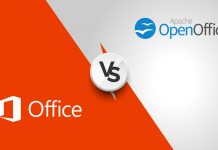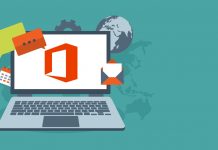Many software vendors only offer licences for business customers with volume licensing agreements. However, even private users can legally purchase and use volume licences, even though they were traditionally intended for companies with volume licensing agreements. Since there are still misunderstandings despite the legal situation, we would like to give you a closer look at volume licences in our current blog post.
More details about volume licensing
The advantage for companies is that the programs can be optimally adapted to the requirements and licences can be managed more easily. Each buyer decides whether he wants to rent the licences for a certain period or buy them instead. In addition, volume licences are often subject to different terms of use. Further advantages are the discounts granted to companies at the time of purchase depending on the number of volume licences. In order to conclude a volume licensing agreement, a company must have at least 250 computers. Furthermore, there are also differences between commercial enterprises, research and teaching institutes.
A volume licence (including Windows Enterprise versions or Windows Server products, for example) can be rented or purchased and can be financed through annual installments or other payment models. Nevertheless, craftsmen, freelancers, sole traders or private individuals can also legally buy licences that a manufacturer originally intended only for companies.
Microsoft lowers barriers for using volume licensing as a private user
But not only German and European courts affirm the legal purchase of volume licensing keys as a private users. Moreover, Microsoft has lowered the barriers for this. The company from Redmond announced in 2015 that Software Assurance (SA) is no longer necessary for the use of Windows Enterprise versions from volume licensing agreements. This means that individual licences can also be used without a maintenance contract.
The key legal term for the purchase of product keys from volume licensing agreements is the so-called exhaustion principle. The principle of exhaustion can be found in the German Copyright Act (UrhG). It states that the author’s right to distribution is exhausted after he has brought a work or product (e.g. software) onto the market for the first time. Conversely, after the sale he has no further influence on what the first purchaser does with it. Therefore, he can resell it at any time afterwards. According to § 69 c No. 3 sentence 2 UrhG, this principle of exhaustion also applies to software.
ECJ and BGH judgements regarding to volume licensing
In its landmark decision of 6 July 2000, the Federal Supreme Court (BGH) ruled – based on the exhaustion principle of the Copyright Act – that software could be legally redistributed at any time if the manufacturer has sold it for the first time with his consent. Thus, the manufacturer benefits only once from the sale of his product.
Now there are some software manufacturers who operate with contractual clauses that are intended to restrict the trade in used licences. However, these are basically no effect and it is not compatible with the jurisdiction of the Federal Court of Justice or with the principle of exhaustion. In a judgement of 3 July 2012, the European Court of Justice (ECJ) underlined this once again.
Product keys from volume licensing agreements are covered in the exhaustion principle
The BGH emphasized this in its judgment from 17 July 2013 in the Usedsoft III proceedings (file number I ZR 129/08). Legal experts considered that the judgment might be an absolute sensation at the time. The BGH thus expressly stated for the first time that the distribution right of software does not only refer to the download copy of the first purchaser, but that the principle of exhaustion also applies to those copies which are made for distribution to second purchasers. This finally cleared the way for trading in used software and legalized the splitting of volume licenses for resale to third parties.
Every software licence that originates from a volume licence agreement falls in the category of exhaustion and may therefore be resold. In April 2008, the Munich I Regional Court ruled that the sale or disposal of individual Microsoft software licences, which had previously been issued within the scope of volume licensing agreements, is also possible without Microsoft’s consent (file number 30 O 8684/07). The question is whether reputable dealers may also offer volume licensing with corresponding contracts to private users was answered with a clear “YES” by the judgement of the European courts (including the Federal Supreme Court).
The judgments are milestones for the entire software industry and have been acknowledged with great attention worldwide. In France, the Association Française des Editeurs de Logiciels (French Association of Software Manufacturers) stated that this had serious consequences for the software industry. On the other hand, experts from the USA and Great Britain added that the decision of the German courts and the ECJ would stimulate strong growth in the secondary market for software licences.
Microsoft volume licensing for private users: How to be on the safe side
But even if the jurisdiction is quite clear, there are potential pitfalls for uninformed customers. The above-mentioned judgments only relate to products that have been placed on the EU market. In that case, the licences can be legally resold. Furthermore, the first purchaser has to prove that all copies are deleted on the computers and/or the cloud when reselling the used software from volume licensing. Serious dealers can completely document this and work exclusively with renowned partners who have a great reputation in the used software trade. Therefore, when buying used software, you should always make sure that you actually purchase a valid licence and not just a product key like a MAK. Also take a look at the reviews of the provider on Trusted Shops, Trustami, eBay or Amazon. There, you can get a closer look at the retailer.



















